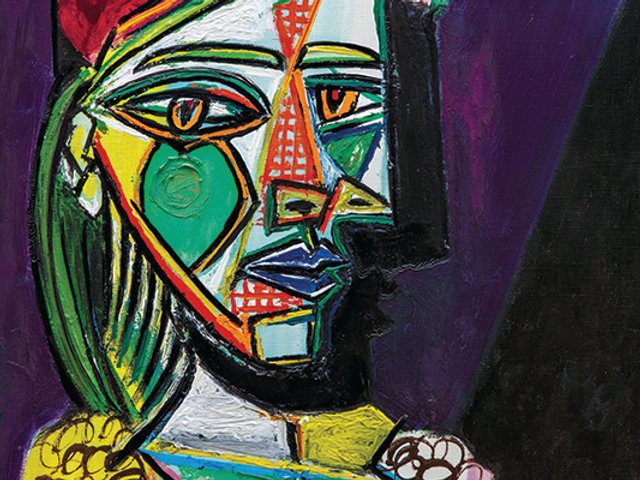Fresh off a stop in Manhattan, a group of 32 works by Pablo Picasso is expected to fetch more than $43m after its international tour ends in late December. Typically, the works would be sold by an auction house, but instead the task is being done entirely privately by Ward Moretti, the London gallery formed by the dealers Emma Ward and Fabrizio Moretti in autumn 2022.
Acquired over the past quarter-century, the Picasso holdings of Dutch collectors Pieter and Olga Dreesmann mainly consist of works on paper, unique ceramics and sculptures, dating from 1899 to 1962. The group includes examples from the artist’s Blue and Rose periods to his explorations into Cubism, Neo-Classicism and Surrealism. Among the highlights are a significant group of early bronzes and several works depicting the women in his life, including three images of Marie-Thérèse Walter from the 1930s, along with drawings of Dora Maar and the model Fernande Olivier. Individual asking prices stretch from $12,500 to $3.5m.
Ward Moretti began touring the Dreesmanns’ collection of Picassos in October, joining the bounty of exhibitions held worldwide to commemorate the 50th anniversary of the artist’s death. After staging a show at Ward Moretti’s London headquarters during Frieze Week, the dealers took it to Paris during Paris+ by Art Basel. (Moretti operates a solo gallery space there.) The third iteration went on view at a pop-up location on New York’s Upper East side from 6-18 November. For the finale, the dealers ran a three-week presentation in Monaco from 6-22 December.
Trusted adviser
The Dreesmanns, who previously sold a collection of 17th-century Dutch Old Master paintings at Christie’s, tell The Art Newspaper they decided to entrust Ward Moretti with the sale of their Picassos because of their close connection with the British dealer James Roundell, who now consults for the gallery. Roundell met Pieter Dreesmann in 1991 through the Parisian gallerist from whom Dreesmann bought his first Picasso, a blue watercolour titled Étude Pour “la Buveuse d’Absinthe” (1901).
Roundell went on to advise the Dreesmanns on their acquisitions of Picasso’s work over the succeeding decades, especially when they began prioritising the artist in their collection about 25 years ago.
Personal ties aside, working with a private dealer rather than an auction house has strategic benefits, according to Emma Ward: “Pieter and Olga retain utter control of every aspect of the sale process, which is not the case at auction. You don’t know who the buyers are going to be, and we have been transacting with the group in a very, very open way.” Ward Moretti had placed about a quarter of the collection, all with private collectors, before opening the New York exhibition, Ward says.
She expects sales of the Dreesmanns’ Picassos to continue into 2024—an uncontroversial possibility, since selling privately avoids the time crunch of selling at a public auction. Consigning to a dealer, especially during an economic slowdown, also protects collectors by ensuring any pieces that fail to sell only do so discreetly, Ward says. In contrast, being passed over by bidders at a public auction (aka being “burnt”) can be disastrous for a work’s market value and potential to sell in the short- to medium-term future.
A private dealer can also offer more “bespoke” services to consignors, Ward adds, particularly for works that might otherwise be upstaged as part of a larger sale at a major auction house. “A number of these [Dreesmann Picassos] are quite small and intimate. There are works on paper, and some of those could be overlooked in an auction context, especially when you’ve got a giant [Emily] Fisher Landau Picasso worth $120m that’s very, very bright and colourful and splashy,” she says, referencing Femme à la Montre (1932), which sold at Sotheby’s in New York for $121m ($139.4m with fees) in November.
Meanwhile, the Dreesmanns, whose collection will be completely devoid of Picassos if Ward Moretti ultimately sells every work in the group, will focus on building a broader collection next. Although they do not rule out acquiring more works by Picasso eventually, the prospect of selecting which few to hold back from this particular consignment proved too difficult.
“How can you choose from among your children?” Pieter Dreesmann says.



